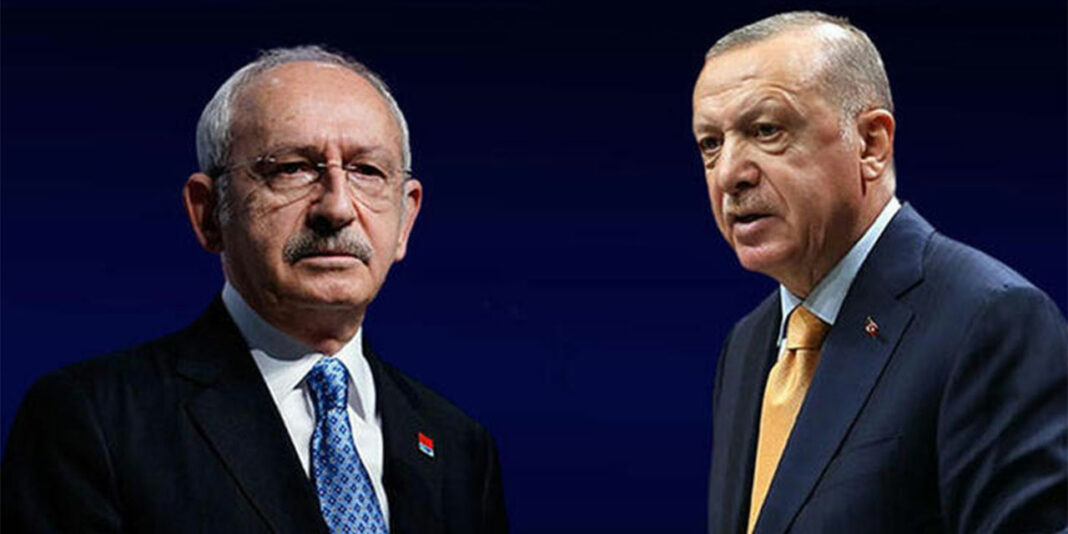Türkmen Terzi
According to recent polls, Kemal Kılıçdaroğlu, the presidential candidate of the opposition alliance and leader of the Republican People’s Party (CHP), seems to have a lead over Turkish President Recep Tayyip Erdoğan. Should he be elected, it’s possible Kılıçdaroğlu would aim to pursue a Western-oriented foreign policy, possibly working towards normalizing Turkey’s relationship with Syria’s President Bashar al-Assad, and potentially reducing tensions with Greece.
After a coup attempt in July 2016, Erdoğan strengthened his position by purging numerous Turkish generals and military officials. This purge affected the influence of Kemalist Turkish generals within the army. Consequentially, Erdoğan, with his sway over the military unchallenged, broadened Turkey’s military engagement in several countries, including Syria and Libya and the Nagorno-Karabakh conflict between Azerbaijan and Armenia.
Under Erdoğan’s leadership, the Turkish defense industry, notably the TB 2 combat drone business owned by his son-in-law Selçuk Bayraktar, has seen a significant boost. Bayraktar drones have been important in various conflicts, such as Azerbaijan’s clash with Armenia and the Libyan government’s war against General Khalifa Haftar’s forces.
Should Erdoğan’s ruling Justice and Development Party (AKP) emerge victorious in the elections, it’s possible that he would continue with a belligerent foreign policy, especially in the Middle East and North Africa, while further bolstering the Turkish defense sector. Conversely, if Kılıçdaroğlu and the CHP come to power, it’s conceivable that Turkey might return to a more peaceful foreign policy aligned with the principles of the country’s founding father, Mustafa Kemal Atatürk, who advocated for “Peace at home, peace in the world.”
Ünal Çeviköz, Kılıçdaroğlu’s chief foreign policy advisor, has suggested that a CHP government might strive to repair Turkey’s human rights record and could potentially look at implementing the rulings of the European Court of Human Rights, which could include the release of prominent Erdoğan opponents such as Selahattin Demirtaş and Osman Kavala. Thus, with a CHP government, it’s possible that Turkey’s EU accession talks, which have been on hold since 2018 due to alleged anti-democratic practices under the AKP government, could be revived. Turkey could potentially scale back defense relations with Moscow and might even consider supporting Western sanctions against Russia. The country under Kılıçdaroğlu’s rule might not be as eager to join blocs led by Russia and China.
Kılıçdaroğlu might be less inclined to interfere in the local politics of Middle Eastern countries, even though he’d likely maintain and foster Turkey’s business relationships in the region. It’s not expected that the CHP’s approach towards Greece and Armenia, two of Turkey’s uneasy neighbors, would lead to significant breakthroughs due to ongoing disputes. Turkey, however, might continue its cross-border operations in northern Iraq to combat the outlawed Kurdistan Workers’ Party (PKK), which is recognized by much of the international community as a terrorist organization.
A CHP government could possibly prioritize the security of Balkan states like Kosovo and Bosnia, keeping a close eye on the Muslim populations in these regions due to historical and religious ties. The CHP might refrain from continuing Erdoğan’s aggressive foreign policy in the MENA region and could potentially avoid allocating a budget to mobilize Muslim minorities worldwide to establish Turkish soft power.
The CHP might avoid supporting Islamist political groups in Muslim countries, a departure from the AKP’s backing of organizations like the Muslim Brotherhood in Egypt, Sudan, Libya, Tunisia and other Muslim nations. The use of an advanced Russian S-400 air defense missile system might not find favor under CHP rule.
If the CHP wins the elections, it could lead to a realignment of Turkey’s foreign policy towards the West. The focus might be on normalizing relations with NATO members and the European Union, possibly improving Turkey’s human rights record and considering implementing European Court of Human Rights rulings. Turkey’s business ties with Middle Eastern countries are likely to continue, while defense relations with Russia might be scaled back, and Western sanctions against Russia could potentially be supported. Turkey’s involvement in regional conflicts could decrease, and a more peaceful foreign policy might be pursued.
In conclusion, a CHP victory in the elections might result in a significant shift in Turkey’s foreign policy towards the West.
